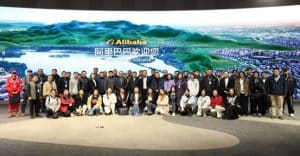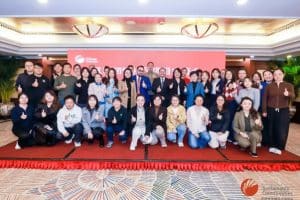On July 25, the Ministries of Foreign Affairs, Public Security and Civil Affairs co-hosted the Overseas NGO Forum in Shanghai, so as to better understand the development of overseas NGOs in China. Suggestions on improving their services and governance were collected. Guo Shengkun, a member of the State Councilor and Minister of Public Security, made a statement claiming that “the Chinese government highly appreciates the positive role overseas NGOs play, and welcomes and supports their friendly exchanges and cooperation with China. Additionally, the government will provide better services and governance for overseas NGOs, including more benefits and security and better environment.” I have been working at the China Association for NGO Cooperation (CANGO) for 18 years. From previous experiences in dealing with more than 200 overseas NGOs, I have had much dialogue, conflict, communication and cooperation with the staff of overseas NGOs. There was a certain period of time when I lost confidence in dealing with overseas NGOs, but the objective comments on the impact of Overseas NGOs in China given by state councilor Guo Shengkun, as a representative of the Chinese government, greatly encouraged those who cooperate with overseas NGOs and enhanced our sense of responsibility and belief in this mission. So what have overseas NGOs brought to China?
Friends often ask me whether overseas NGOs have a significant impact on the development of Chinese social organizations (namely, NGOs). After 18 years of practice, I feel that overseas NGOs have promoted the standardization of Chinese NGOs’ operations, capacity building and professional talents nurturing. Overseas NGOs also play an important role in guiding and promoting the development of Chinese civil society, by making Chinese NGOs more transparent, self-disciplined, and providing them with more opportunities for exchange and cooperation. This means that the gap between Chinese and overseas NGOs has been narrowed, and they have developed a platform to foster dialogue and cooperation.
In my opinion, overseas NGOs do not merely bring financial support, but rather strengthen China’s soft power. Take poverty alleviation as an example, overseas NGOs have impacted China significantly and have played an active role in the Chinese government’s hard work in eliminating poverty. The World Bank has appreciated Chinese government’s contribution in poverty alleviation, and the UN also praised the Chinese government’s work in achieving its Millennium development goals between 2000 and 2015. Experts have estimated that Chinese civil society has contributed 20% to China’s poverty alleviation. The contributions of overseas NGOs shouldn’t be neglected either. This contribution has taken a number of forms.
First of all, their financial support has promoted China’s poverty alleviation. Generally speaking, overseas NGOs’ financial support has always been an important part of China’s reform and opening up. Taking CANGO as an example, by December 2014 it had set up programs and cooperation with 181 overseas NGOs and international multi-lateral/bilateral organizations, among which 97 organizations from 19 countries/regions have provided 815 million RMB to China via CANGO, alongside matching funds of 545 million RMB from domestic sources. Cooperation projects between CANGO and overseas NGOs have benefitted 118 poverty-stricken regions and counties, covering 31 provinces, autonomous regions and municipalities of China. 238 of their charity programs have benefited 6.6 million people in need of help. According to the Nanjing Amity Foundation’s data, between 1985 and 2011, the Amity Foundation had cooperated with 25 American NGOs and received a total sum of 200 million RMB from American NGOs.
Secondly, overseas NGOs’ technological support has brought in new modes of poverty alleviation. As is known to all, the biggest advantage enjoyed by NGOs is innovation. When cooperating with Chinese civil society, overseas NGOs have developed new mechanisms and models for poverty alleviation. For example, the Participatory Rural Appraisal (PRA) has been successfully applied in several cases to assist the poor. The new concept microcredit has helped millions of farmers to escape from poverty. Liang Dan, former president of CANGO, once remarked that “the practice and promotion of microcredit have fundamentally solved the problems concerning door-to-door poverty alleviation and the efficient use of funds. It has fostered a sustainable poverty-alleviation method, and once more has manifested how innovation can contribute to economic development and social progress.” Chen Taiyong, from the Heifer Project International, has also told me that since they started working in China, the number of households which benefitted directly from their projects increased from 104 in 1984 to 8658 in 2014. During these 30 years, they altogether supported 110,682 rural households and played an important and active role in promoting poverty-elimination in rural areas.
Thirdly, passing on new notions of charity has changed approaches to poverty alleviation in China. Overseas NGOs have not only brought China funding and technology, but they have also spread new ideas. For instance, during CANGO’s cooperation with overseas NGOs, the clash of eastern and western cultures led to a change in several traditional and inappropriate local concepts. When staff from overseas NGOs set foot in rural China, they sometimes find it hard to understand Chinese people’s enthusiasm and sincerity. For example, a foreign NGO worker once went to a poverty-stricken county to conduct surveys and design projects. When he stepped into the dining hall of the county government, he was very surprised at the lavish reception dinner. Actually, I also felt uneasy while at the dinner table. During our conversation, he told me the following: “Iwill never come back since I don’t know whether our funds will be eaten up by them or not.” This case fully showcases the difference between eastern and western cultures. Especially the remote and impoverished regions seem to get stuck in a vicious circle of “the more they eat, the poorer they become”. Objectively speaking, it’s a cultural difference. The poverty-stricken county had no money, and they wanted to get help from foreigners. They thought a bountiful reception would bring them money and projects. Later I explained to the foreign guest and asked if he could give them one more chance to change his impression. Two years after the initiation of the project, we returned to the same county in question.This time we ate a bowl of noodles. He understood and smiled. Hospitality is an advantage of oriental culture. Through practice, local Chinese people have proven that they can learn from the essence of western culture, which happens to be similar to the Chinese tradition of thrift and frugality.
Fourthly, overseas cooperation has nurtured professional NGOs and talents working for international poverty-elimination. Through program cooperation with overseas NGOs, I have found that they place a great emphasize on organizational construction and the cultivation of talents. Once the traditional mechanisms are abandoned, the basic level construction of organizations becomes very important. For instance, in Yilong county, Sichuan province, through the implementation of the project of Germany’s Caritas CANGO helped establish the Yilong County Development Association and the Yilong county Zhanggong village’s Comprehensive Community Development Association. CANGO itself provides another example. It has gradually cultivated devoted professionals who understand international conventions, program governance and the characteristics of China. Viewed from the basic level, the projects assisted by overseas NGOs have opened up a new channel for grassroots level (in other words, county level) international economic and technological exchange. These programs also broadened the local leaders’ and the people’s vision, and helped nurture managerial talents so as to implement projects assisted by overseas NGOs. Since its establishment 23 years ago, CANGO has trained more than 10,000 program managerial professionals through cooperation with overseas NGOs, which has played a positive role in nurturing local talents for Chinese NGOs.
The above conclusions are far from sufficient, and I hope more friends will write to support or supplement my views. All in all, overseas NGOs have brought a positive influence to China’s economic and social development. They have played a significant role, especially in promoting poverty-alleviation in China and the healthy development of Chinese NGOs.



